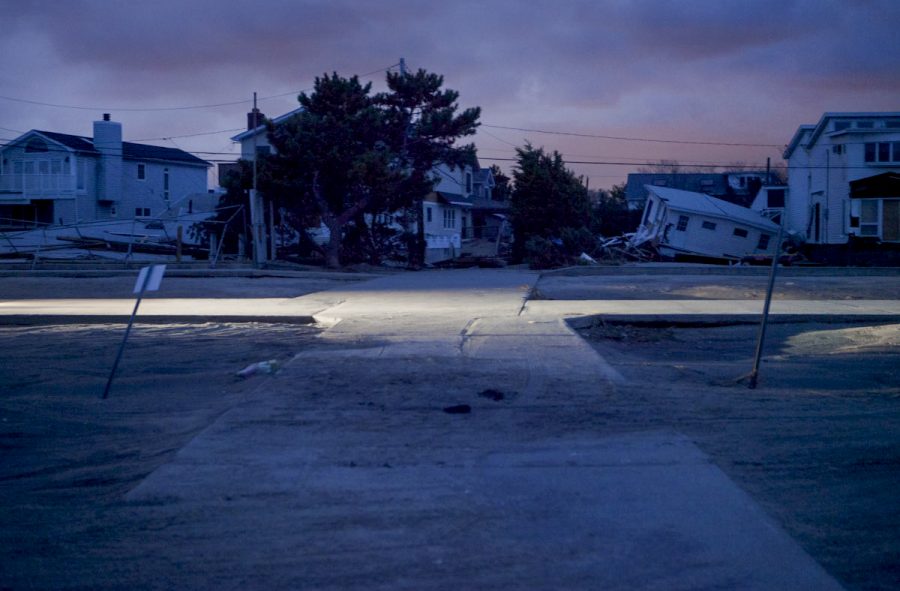
Weather and Climate Change
**Photo by Gaia Squarci. All rights reserved. – Breezy Point, Queens, in the aftermath of hurricane Sandy. New York City, United States. Oct 31, 2012**
–
Weather and climate can be confused for each other, but the weather is the atmospheric conditions you observe around you and over a very short period of time, while the climate is the (very) long term trend of the same variables: temperature, humidity, pressure, wind, precipitation etc.
It is often tempting to use the weather – or any kind of information – to confirm your own thoughts on climate change, but scientists warn to be very careful in doing so because the scale of our human observations is not suited to infer where the climate is heading.
While “It is possible to say how the likelihood of extremes has and will change in a warming world, that requires considerably more analysis of how local conditions have changed over time and generally can’t be done until well after a particular event has ended.” explains Zeke Hausfather, a Climate Scientist at U.C. Berkeley/Berkeley Earth.
The NYT end of the year oped by David Leonhardt somehow counterfeits cautious scientists by arguing that “the weather still has one big advantage over every other argument about the urgency of climate change: We experience the weather. We see it and feel it.”
Depending on where you live, climate change may then be a striking reality to you today. If you lived in Italy – where our design agency for researchers is based – you would have witnessed a 2018 with a January +2.37°C warmer than average while April hit an astonishing +3.50°C! Definitely something you could see and feel. But not everyone has the chance to live in Italy! Try it yourself, how hotter it is in your birth place since you were born?
For instance, in Australia “the current heatwave ranks alongside that of January 2013 as the most extensive and prolonged heatwave on record” senior meteorologist Blair Trewin told the BBC earlier this week.
2018 was also the year of deadly heatwaves in Montreal, Karachi and Tokyo, extreme rain in North Carolina and in Kerala, drought in the Horn of Africa, huge fires in West America and rising extreme hurricanes, as the NYT oped recalls.
The weather is actually striking on us, and it is greatly helping us in spreading the awareness that governments and private firms should act quick to tackle GHG emissions, as scientist have been claiming since decades, if we want to avoid legacing to our children and grand children a disrupted planet.
Awareness is essential because it brings people to take individual actions to lessen their carbon footprint, through little commitments involving diet, transport, thermal comfort, investments and so on. These individual actions may have little effect on the planet’s fever but they are contagious in our social sphere, and thus help spread further awareness.
Global awareness is what we ultimately need to be able to move politics and businesses in the right direction, as they will always be looking for their own benefit, namely votes and sales.
